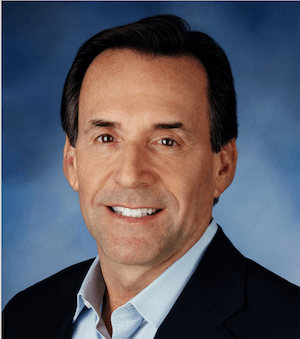
Capital Senior Living Vice Chairman and CEO Lawrence “Larry” Cohen will be retiring Jan. 1, but before he leaves, he spent a few minutes with Senior Editor Lois A. Bowers to talk about the senior living industry, the company, his career and his future.
Q: You’ve been with Capital Senior Living for 21 years, 19 as CEO. What are the accomplishments during that time of which you are most proud?
A: I’m most proud of the team we’ve developed. Our caregivers, our staff and the regional corporate staff do such a fine job and serve the residents so well. We score 95% or greater in resident satisfaction. It’s been an honor to have led this company and our dedicated team of employees.
Q: How has Capital Senior Living changed over the years?
A: When I joined Capital, it was a small company. Back in 1996, 75% to 80% of our properties, maybe even more, were independent living. Today, 60% of our residents live in assisted living and memory care, and 40% live in independent living. The age of the resident has probably increased by a decade from when we started back in 1996.
We were developing properties and stopped development in 1999. We navigated through another rough patch in the industry with overbuilding in the late 1990s and were able to develop great institutional relationships with strong financial partners that helped us build our portfolio and our balance sheet and eventually allowed us to monetize real estate investments to start to have the ability to be the owner of real estate.
The capital structure with the ownership of the real estate has continued to deliver very attractive returns to our company and has allowed us to invest in people and technology and systems to provide excellent care to our residents. We’re now one of the largest owners in the country, as a percentage of our portfolio, and we also transformed the service levels of care we deliver to our residents to meet the needs of an aging population that we’re serving.
Today, there’s a much greater level of sophistication in the approach of the industry. I think we’re at this inflection point where, going forward, the senior housing industry will play a much more important role in the whole healthcare continuum.
Q: You mentioned a period of overbuilding in the 1990s, similar to what’s going on now. What were the lessons learned from that time?
A: One of the lessons learned for the industry is that owning real estate gives us equity and access to cash to weather difficult times. As we came out of that difficult period, and as our operations improved and the real estate values increased, we were able to rebuy or monetize again the real estate at very high returns, which gave us a much strong balance sheet.
It was the cash from those transactions that ultimately allowed us to seed the equity investment in the $960 million or so of real estate we’ve acquired over the past eight years. We’ve increased our ownership from 25 buildings in 2010 to the 83 communities that we own today.
Capital Senior Living developed back then, so we were also impacted by slow lease-ups that were costing us money. A lesson learned was that we no longer develop.
Other lessons learned are to be patient, to manage expenses well and that this industry has always been resilient. It recovered from the overbuilding of the late 1990s. It recovered from the 2008-2010 recession and the housing downturn, and it’s always rebounded much stronger than it had been prior to a downturn.
Q: Capital Senior Living and other operators face many challenges right now. What do you think are the biggest ones?
A: I think the industry’s challenges today are dealing with work competition, dealing with labor shortages in parts of the country, and increases in wages.
Capital Senior Living has very focused action plans, and the vast majority of our properties still perform at a very high level. We’re implementing a lot of initiatives to continue to improve our delivery of care and services, including moving toward a more centralized operating platform.
Q: What does the future hold for you?
A: I will continue to lead the company for the balance of the year, and then I will be available as a consultant after that. I hope to enjoy some time in retirement and pursue personal and other business interests at the same time.

